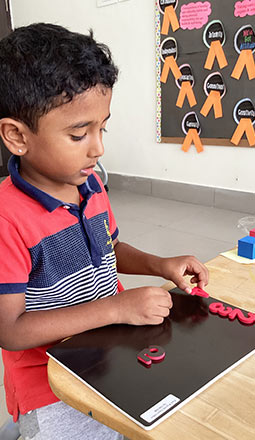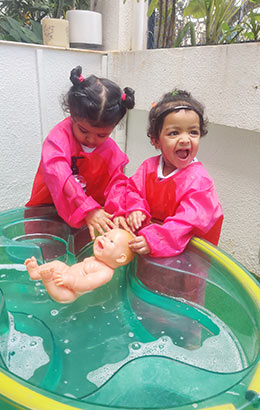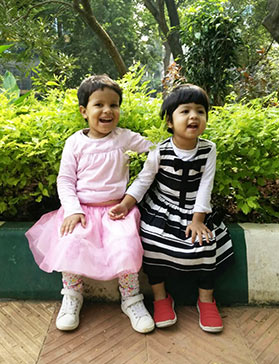Secondary Curriculum
Cambridge Lower Secondary (Grade 6 to 8)
- English
- Mathematics
- Sciences
- Social Studies, (History, Geography)
- Information and Communication Technology
- Languages (Foreign Languages, as well as Hindi and Kannada)
- Physical Education
- Creative Arts (Visual Art, Music, Drama)
Alongside these subjects, we have developed additional bespoke courses to help prepare students for our ever changing world, specifically:
- Personal, Social, Health and Moral Education
- Global Citizenship
- Green Science (Environmental Awareness)
- Life Skills
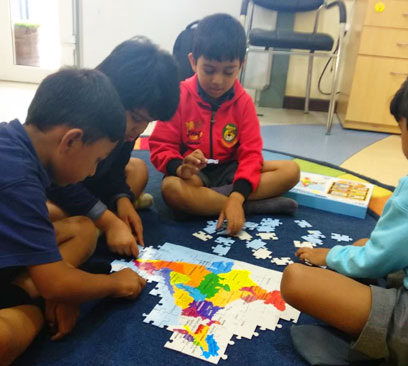
High School
Cambridge Upper Secondary (Grade 9 & 10)
Cambridge Advanced (AS & A Level)

International Baccalaureate Diploma (Grade 11 & 12)
The final two years of Schooling at UWA will see our students striving towards gaining the IB Diploma.
This qualification is widely recognised as the ‘gold standard’ for University entrance and quite apart from anything else, it aligns very closely with our ethos and mission, namely: to mould internationally minded young adults who will exert a positive influence on their world.
Students follow courses in 6 subjects, three of which are studied at Higher Level and three at Standard Level.
Certain subjects, such as Mathematics, English and a foreign language are mandatory, but even in these subjects there are a number of levels offered, which means that the Diploma programme is accessible to all. The remaining three subjects can be chosen from a wide range of options available.
In addition to the 6 academic studies there are a number of other elements which lie at the heart of the Diploma programme, known as the Core.
Extended Essay (EE)
This is a detailed report based on in depth research into a topic chosen by the student.
Theory of Knowledge (TOK)
Time is spent reflecting on the very nature of knowledge and this reflective, inquisitive approach permeates all areas of the academic subject areas as well.
Creativity, Activity, Service (CAS)
Creativity
All students are expected to participate in creative endeavours. This can be within a myriad of disciplines, with the students exercising a high level of personal choice.
Activity
The basic premise of personal choice is also integral to the Activity element of the Diploma, with many young adults involving themselves in worthwhile projects.
Service
The third element of CAS is Service, where students ‘throw’ themselves into projects and schemes where they can make a difference to the lives of others.
The IBDP is a challenging but very fulfilling curriculum which ensures breadth of study and academic rigour. The DP core aims to broaden students’ educational experience and challenge them to apply their knowledge and skills.
* Only schools authorized by the IB Organization can offer any of its four academic programmes: the Primary Years Programme (PYP), the Middle Years Programme (MYP), the Diploma Programme (DP), or the Career-related Programme (CP). Candidate status gives no guarantee that authorization will be granted. For further information about the IB and its programmes visit www.ibo.org.

